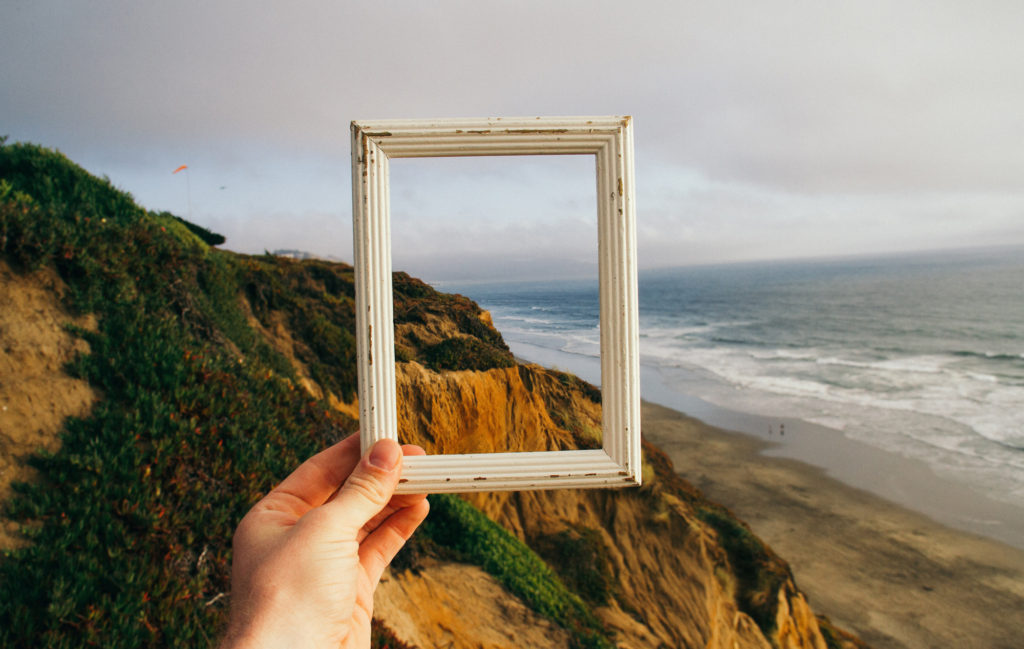
I was introduced to minimalism in a sentence. But that sentence was quickly followed by a question.
On a Saturday afternoon, after spending many hours cleaning my garage while my 5-year old son kept asking me to play catch in the backyard, I began complaining to my neighbor about the project and the time it had taken to clean my garage.
She responded with a sentence, “Yeah, that’s why my neighbor is a minimalist. She keeps telling me I don’t need all this stuff.”
I looked over at the pile of dirty, dusty possessions in my driveway. As I did, in the corner of my eye, I saw my son swinging alone in the back yard—where he’d been all morning. Suddenly, I realized something important:
My possessions were not bringing joy into my life, they were actually distracting me from it.
I was struck in that moment with a burning question that I had never asked myself before, “What could my life look like if I didn’t own so much stuff?”
My entire life (growing up middle class in the middle of America) I had been told, “Make more, buy more, enjoy life more.”
But in that moment, everything changed. The truths that I believed to be true about life were replaced with an entirely new question, “What would happen if I owned less?”
The answer was not hard to imagine: If I owned less stuff, I’d have more money, more time, and more energy for the things that matter most.
The existence of an entirely new worldview was discovered… by asking myself a question I’d never thought to ask.
I have found, along my path to becoming minimalist, that learning to ask new questions is a powerful and effective strategy to owning less—almost essential. And that many of the obstacles to minimalism can be overcome by learning to ask different questions.
For example:
Instead of asking: “What if I throw out something I need later?”
Ask: “What if I keep a whole bunch of stuff I never end up using?”
Suddenly, you begin to see your hard decisions in a new light. Living your whole life with a house full of stuff you don’t use adds stress and anxiety and robs someone else of the opportunity to use it. There are negatives to holding on to things “just in case” we need them. But we rarely think of the negative consequences because we never ask the question.
Learning to ask a new question helps us overcome this obstacle to minimalist living.
The strategy can be tried in countless scenarios.
Here are some more:
Instead of “What if I lose friends because I choose a minimalist life?”
Ask “If my friends stop hanging out with me because I no longer buy the same things they do, are they really my friends in the first place?”
If you need nice things to impress your friends, they probably aren’t worth impressing anyway.
–
Instead of “Will I regret not making this purchase today?”
Ask: “What could I do with the money instead?”
Because there is a good chance you could find more happiness and meaning not buying the thing you don’t need.
–
Instead of “What if so-and-so gets mad because I got rid of the gift they bought me?”
Ask “Would my friend want me to keep around something I don’t need just because they gave it to me as a gift?
If you gave a gift to a friend and found out they no longer wanted it, would you want them to keep it just because you bought it? Probably not. Most people don’t give gifts to be a burden. Like you, most people would be upset that you kept something you didn’t want just because they gave it to you.
–
Instead of “What if my kids get jealous because they don’t have as much stuff as the neighborhood kids?”
Ask “What life lessons are my kids learning if I buy them every toy they want?”
I’ll never regret the life lessons my kids have learned while we pursued minimalism. They have learned that you don’t overcome envy by giving into it. And they have learned to find contentment and happiness with what they have.
–
Instead of “What if I get bored owning less?”
Ask “What might I be able to accomplish if possessions were not weighing me down?”
Rather than assuming you will be bored, trust in yourself and all you can accomplish. You’ll never know how far you can fly until you loosen the weight holding you down.
–
Instead of taking no steps because “What am I going to do with my partner’s stuff?”
Ask “Which of my own stuff can I minimize first?”
You may be surprised how much of a difference you can make in your home by focusing on just your own stuff.
–
Instead of “How am I ever going to minimize _________?”
Ask “Have I seen owning less benefit my life? Well then, how am I going to apply the principles here?”
You see, you don’t need to have all the answers before you get started. Where there is a will there is a way. And it’s true. If you’ve seen the benefits of owning less in other areas of your life, you’ll be able to find a workable solution for your book collection, paper piles, or yarn stash.
–
Instead of “What am I removing from my life?” Ask “What am I adding?”
And rather than wondering “What if I fail?” Consider “What if I succeed?”
The next time you feel stuck, test out this little strategy. Try thinking through the problem from the other side and discover a brand new question to ask. You may be surprised how it changes your outlook.
from Becoming Minimalist https://ift.tt/32pwI46
Aucun commentaire:
Enregistrer un commentaire